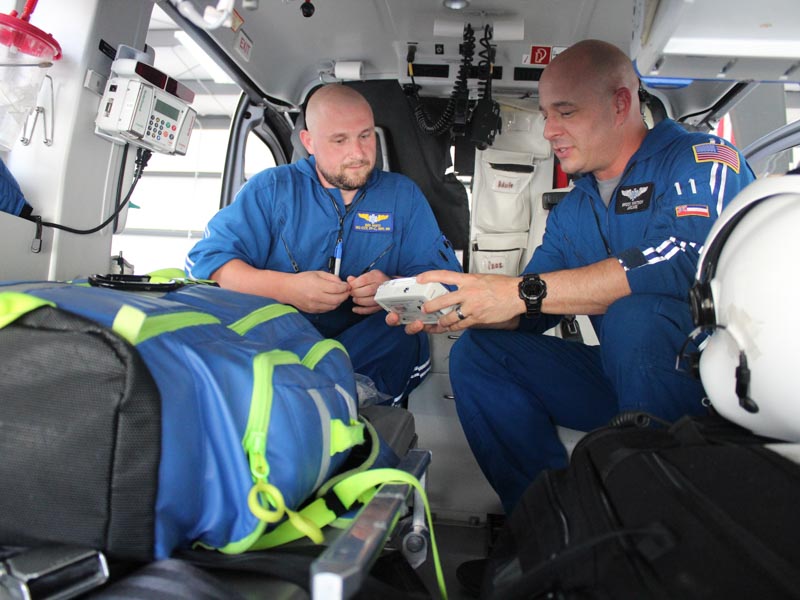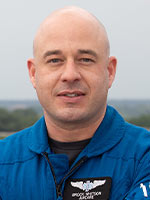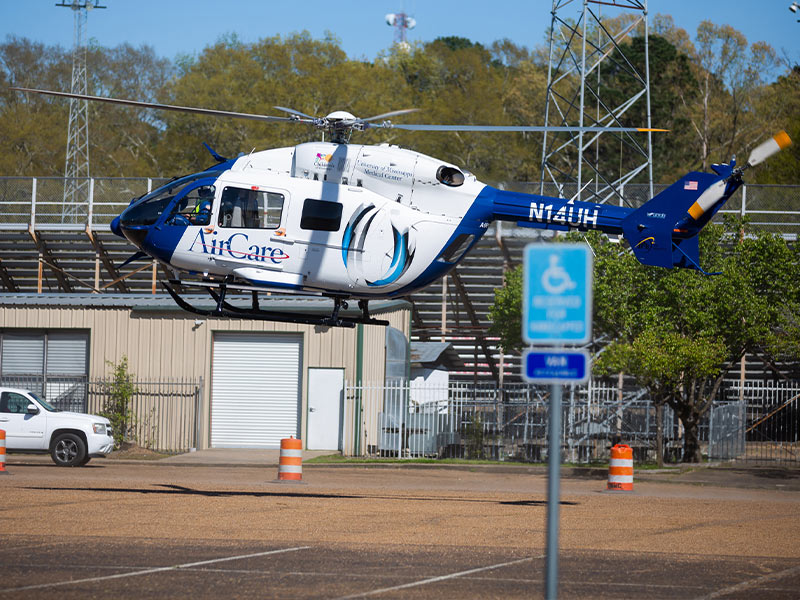AirCare's innovative model helps caregivers cope with 'compassion fatigue'

Of all the patients Stephen Houck treated as a University of Mississippi Medical Center AirCare flight paramedic, the preschooler is the one that shook him to his core.
“She had been raped by her father, choked and drowned,” said Houck, who five years ago transitioned to management within UMMC’s Mississippi Center for Emergency Services.

“That hung with me for a while,” Houck said. “I didn’t talk about it. I dreamed about it. I thought, ‘Are people really this bad?’
“That’s what our people in AirCare are exposed to daily … the worst experiences people might have.”
AirCare, the most advanced medical helicopter transport in the state, is also part of MCES. Houck, who serves as MCES director, had experiences that in some could lead to what’s called compassion fatigue.
It can happen when a person helps another person, or an animal, who is in distress. The caregiver can become preoccupied with the one who is suffering, and that can cause extreme tension, physical and emotional exhaustion and difficulty eating and sleeping.

It can cause the caregiver to depersonalize their care, robbing them and their patients of the element of compassion. “It’s the inability of the critical care provider to be empathetic toward the patient who is suffering the traumatic event,” said AirCare critical care flight nurse Brock Whitson.
Recognizing compassion fatigue as a safety issue, Whitson made it a centerpiece of his studies as he completed his master of health sciences at the School of Health Related Professions.
His thesis project on compassion fatigue led to development of an evaluation model that allows AirCare team members to understand their emotional needs and what strategies, support and resources can best address them before compassion fatigue becomes overwhelming.
Airbus, an international manufacturer of commercial aircraft, helicopters and military transports, is recognizing AirCare’s work to combat compassion fatigue with its 2019 Airbus VisionZero Aviation Safety Award. The honor is bestowed on medical air transport programs that are leading the way on safety in the industry.
The Association of Air Medical Services recognized AirCare and Whitson at its Nov. 4 meeting in Atlanta. Created by AAMS and funded by the MedEvac Foundation International, the Vision Zero initiative addresses building a community culture of safety in that industry.
Aircraft manufactured by Airbus include AirCare’s four state-of-the-art helicopters.

With a significant investment and through research, UMMC drew on Whitson’s project to develop an evaluation model that gives individuals immediate information about their psychological and emotional well-being in relation to personal satisfaction, patient care and safety within their workplace.
“Everybody knows what compassion fatigue is, but for decades, it’s just been part of the job,” Houck said. “Rather than just tell people to toughen up, we are being proactive. We’re not just treating those who have outward symptoms, but watching for it.”
Three months after his May 2019 graduation, Whitson had a harrowing on-the-job experience that speaks to compassion fatigue. He went into cardiac arrest August 24 while at work on the AirCare 2 craft, collapsing mid-flight as the helicopter headed back to Meridian after delivering a patient to UMMC in Jackson.
His partners, registered nurse/critical care paramedic James Walters and pilot Davin Mancini, safely landed the aircraft and quickly started CPR, restoring Whitson’s heartbeat. A second three-person AirCare team joined them within minutes, teaming to save Whitson’s life along with UMMC’s Emergency Department and ICU staff.
AirCare’s compassion fatigue program has expanded to include all of its pilots, mechanics, communications staff and clinical flight staff as part of safety training and education requirements. The program’s results will be published and ultimately used to produce a complete training module that other providers can replicate.
“None of this would have been possible without the participation of my coworkers and the support and encouragement from my management and administrative team,” Whitson said.
Houck said AirCare is taking a holistic approach to supporting its employees who cope with compassion fatigue, including future physical fitness and health management initiatives.
“We’re trying to treat the whole person to make sure that they are physically and mentally taken care of, and that they can do their job in a way that encourages them to still love what they do,” he said.


